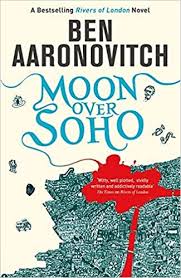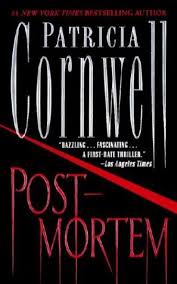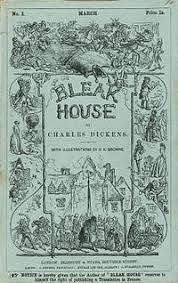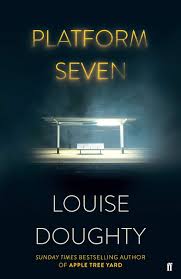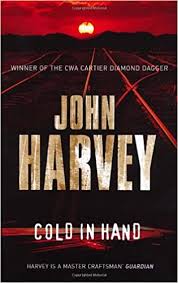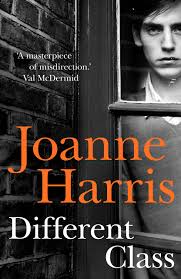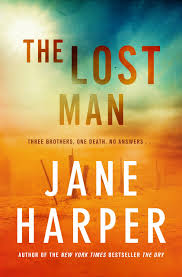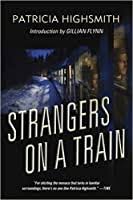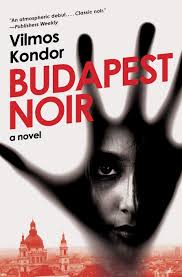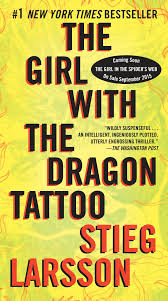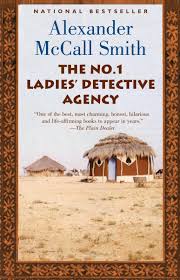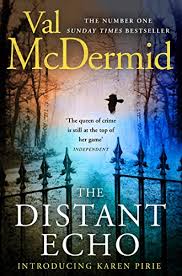Archive for category Uncategorized
W G Sebald in Context Part II – Reblogged from Vertigo
Posted by cathannabel in Uncategorized on February 24, 2024
2022 On Screen (the first half)
Posted by cathannabel in Uncategorized on June 30, 2022
There’s a correlation between the relatively low book count this half-year (see my 2022 Reading post), and the unprecedentedly high film/TV count. On the days when I couldn’t focus enough to read or to tackle any of the jobs on my to-do list, I watched movies in the afternoons. Most of the films were seen via Netflix or other streaming services, which I’d barely explored until this last eight months, with only two cinema expeditions so far this year.The pattern of my TV watching is more as it used to be – a few things which I would never have persuaded my husband to watch, but most programmes/series are ones which I had watched with him, or would have done had he still been here.
I haven’t attempted a full review of everything – this year isn’t normal in any respect, and so my comments on these films and television series may tend to reflect my circumstances, the stage I’ve reached in processing my bereavement, and how that colours my response to what I’ve watched. I’ve tried to avoid spoilers, but no guarantees…
I have missed out a few things about which there was really nothing to say – a film/programme that did what it set out to do but left little impression, one which I dozed off during, and woke to see the final credits rolling, or started watching and couldn’t be bothered to finish. Because the latter two categories may be about me as much as the quality of the material, I would not necessarily seek to judge… Where something aimed high and fell short, or did a disservice either to its source material or to its subject, I say so, however. And the best of what I’ve watched so far this year is marked with an asterisk.
Films (via large and small screen)
10 Cloverfield Avenue
When I was recovering after knee surgery my son came to stay for three weeks and brought a stack of DVDs, handpicked for my enjoyment (he knows me very well), but also avoiding anything too heavy about loss and grief. This was an excellent choice – the claustrophobia and paranoia set in early on, and I really could not predict how the plot was going to play out, nor were the loose ends tied up too neatly at the end.
22 July
The triggers I was trying to avoid were personal and specific, so didn’t condemn me to bland fare. Far from it – this one was a tough watch; it moved me but didn’t (apart from an odd moment) cause me deep distress. My interest in this account of the 2011 Norway killings was in the aftermath rather than the atrocity per se, and specifically how the trial was handled. Perhaps also there is some release in confronting a bigger tragedy than my own, with wider impact and implications. I’d very much admired Greengrass’s United 93 and this was just as good.
‘71
Absolutely gripping, the sort of thriller where you forget to breathe… Added power in the knowledge of the reality of, if not this specific story, then the general situation on the streets of Belfast at the start of the Troubles, and added interest in the knowledge that some of the Belfast scenes were actually filmed here in Sheffield.
The Aftermath
Could have been good. But it was so wooden and predictable. It flips the scenario at the heart of both Vercors’ clandestine wartime novel, The Silence of the Sea, and Irene Nemirovsky’s Suite Francaise (see below), as a French home is taken over by a German officer who, however, proves to be cultured and troubled. (Those two sources are more or less contemporary – I can’t see any way they could have been aware of each other.) But this film doesn’t do anything more interesting with the plot than make the occupying forces the Brits and the cultured German the person whose home has been taken over. The love affair which results is both predictable and unconvincing, at least in its denouement.
Ali and Ava*
This was wonderful. It goes to some dark places but I was rooting for Ali and Ava from the start; the characters are beautifully written, and beautifully played, by Adeel Akhtar and Claire Rushbrook, it’s often funny, and very touching.
Aliens
Another film from a movie night with my son, who was shocked to learn that I’d seen Alien but none of its sequels. This was thoroughly gripping, with plenty of jump scary moments and obviously a proper kick-ass female lead.
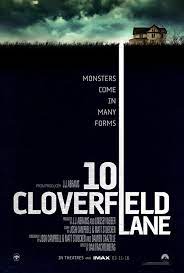





All About my Mother
My first Almodovar. Cruz is wonderful, as is Cecilia Roth. The plot is quite overwrought, which is emphasised by the interweaving of Streetcar Named Desire (amongst other intertextual references), but it’s witty and warm and compassionate.
Amistad
Fascinating account of the legal case brought after the mutiny on slave ship Amistad, in which the status of the mutineers – had they been brought from Africa, illegally, or were they owned as slaves, legally? – was crucial to the verdict. Djimon Hounsou’s performance is magnificent and very moving.
A Beautiful Day in the Neighbourhood
I was afraid this was going to be really sentimental and sugary but it managed not to be (Tom Hanks really is good at negotiating that territory), and in fact was frequently quite cathartically moving.
Before I Go to Sleep
I’d read the book quite recently – it’s much better than the film, as the film has to miss out so much of the painstaking accumulation of detail that one is unavoidably aware of the plot holes… Kidman and Firth do a decent job in the circs.
Bladerunner 2049*
Fantastic – beautiful, gripping and memorable. I should probably have rewatched the original which I hadn’t seen for decades, but no matter, I loved this.
The Blue Dahlia
A proper film noir, courtesy of Talking Pictures TV, from 1946, starring Alan Ladd and Veronica Lake. Interesting post-war context – Ladd’s character comes home, with two other demobbed air force buddies, and that one of the two has PTSD and a metal plate in his head.

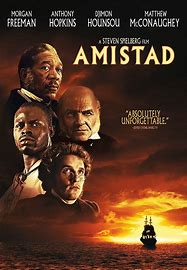




Boiling Point
Bloody hell, this was tense. I felt myself getting more and more hot and bothered as the film went on. Stephen Graham is, as always, brilliant.
Bombardment
One of the pleasures of Netflix has been access to European films about aspects of WWII – this one tells the story of a bombing attack on occupied Copenhagen, towards the end of the war, which attacked the wrong target, killing children and teachers at a local school. The lead characters appear to be fictional, but the basic events are accurately and powerfully depicted, even if the ending is a bit abrupt.
The Book Thief
I wasn’t sure how well the book would transfer to the screen but it’s beautifully and movingly done.
Call to Spy
A film I’d never heard of, about two of the female SOE operatives in France in WWII, Virginia Hall and Noor Inayat Khan. Some of the details are tweaked to place the two of them together in occupied territory, but the depictions of the two women are very true to all of the accounts I’ve read. And I don’t know why there haven’t been more films about Noor Inayat Khan in particular. I ran a session for Year 10s on a gifted and talented programme a few years back, talking about what history is, and talked about the French Resistance and about the real choices people had under occupation. When I told Noor’s story, I swear the South Asian young women in the room lit up – the last thing they had expected was that one of these Resistance heroes would be someone who looked like them.
The Courier
A Cold War thriller, based on the real story of Greville Wynne and his Soviet contact, Oleg Penkovsky. Very well done, Cumberbatch excellent in the lead role, even if Jessie Buckley is somewhat underused as the long-suffering wife (I’ve lost track of how many brilliant women I’ve seen in these movies as long-suffering wife, supportive girlfriend, etc etc, which I thought were tropes that had had their day…).
Curtiz*
Another gem. Curtiz was the director of Casablanca, a film which gets better every time I see it. And one of the things that gives it so much depth and life is that so many of those involved in the making, on both sides of the camera, were themselves refugees from Nazi Europe, including Curtiz himself, who is seen, during the battles with the studios to make the film, also desperately negotiating to try to get a relative out of Hungary. Fascinating.






Da 5 Bloods*
I loved this, so much. Wonderful performances from, esp., Delroy Lindo, Clarke Peters and the late Chadwick Boseman, riffing on Treasure of the Sierra Madre, humour and horror and heart.
Darkest Hour
Great performance from Oldman, and the film manages to create real tension even though we know how it all turned out. The scene on the Underground though – pure hokum! However, as sceptical as I was, it did bring a tear or two to my eye.
David Copperfield*
Glorious. Ianucci captures and revels in Dickens’ exuberance. The performances are wonderful – Dev Patel is perfect in the lead, with brilliant support from Capaldi, Whishaw, Laurie, Swinton et al, and lesser-known names such as Rosalind Eleazar as Agnes Wickfield. And, oh lord, the bit where Dora says, ‘Write me out, Dodie’ breaks my heart.
Don’t Look Up
Crikey, this one was divisive. I can see both sides – I think it’s funnier than some of the critics acknowledged, but less important politically than its creator and its advocates claim. It gets some nice punches in at some fairly predictable targets, but is unlikely to change anyone’s mind or behaviour. Nonetheless, I enjoyed it.
Dr Strange in the Multiverse of Madness
If you’re going to call your film a multiverse of madness, it can’t have a linear plot with all loose ends neatly tied up. This doesn’t – there’s too much happening, too fast, to keep track of the various ‘verses, let alone the implications of what happens in one for all of the others, or to recall which one is the one we started off in. Sam Raimi brings a horror sensibility to the film, which is scarier than Marvels generally are. Cumberbatch is great, Olsen is terrifying and heartbreaking.
Dune*
Villeneuve is one of my favourite directors (see also Bladerunner 2049, Sicario) and this is stunning, visually and in its interpretation of a book I haven’t read for decades, but dearly loved. The soundtrack is great too.




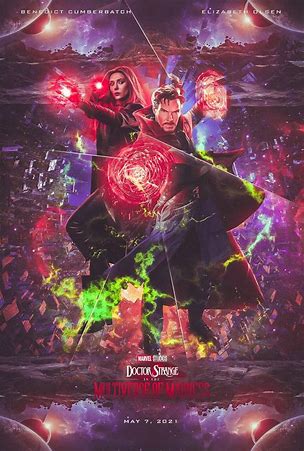

Encanto
Delightful, with a very un-princessy hero and some nice tunes.
Enduring Love
I’m in two minds about McEwan’s novels. On the one hand, there’s Atonement, one of my favourite 21st century novels, and on the other, there’s Solar… I haven’t read the book on which this is based so can only comment on the film, which is gripping and troubling and quite talky but with moments of physical shock, and the performances are excellent.
Enemy Lines
This is what happens when you put every WWII movie cliché into a pile and shuffle them and then just sprinkle them liberally throughout your narrative and script. There were some here I hadn’t heard since Pearl Harbour.
Enigma
Based on the Robert Harris novel which I read this year (see my books blog), it suffers from over-simplification, as we lose so much of Harris’s detailed analysis and explanation that it ends up being just another thriller. The leading man is miscast, but Kate Winslet is great.
Enola Holmes
Millie Bobbie Brown from Stranger Things tackling crime and outwitting her more famous brothers. A thoroughly enjoyable evening’s watching.
The Eternals
This was often baffling, without the excuse of Dr Strange that it was juggling an infinite number of different universes. As familiar as I am with the Marvel cinematic universe(s) this required me to pick up a whole lot of new cosmology which I didn’t totally get, and I really didn’t connect with the characters. All of the above may be partly my fault, if I was feeling particularly foggy when I watched it, so a rewatch may clarify matters.






Film Stars don’t Die in Liverpool*
This is so good. Annette Bening’s portrayal of Gloria Grahame’s last years is so moving – she’s fractious and demanding and incredibly vulnerable. Jamie Bell is excellent too as her much younger lover, and the juxtaposition of the Hollywood star with his Liverpool family is funny and touching.
The Forgotten Battle
Another of the European WWII films that I found on Netflix, this excellent Dutch movie covers the Battle of the Scheldt in 1944, strategically of huge importance, but as the title suggests, somewhat forgotten.
The Ghost Writer
Adaptation of a Robert Harris novel that I haven’t yet read. Very much enjoyed this – the viewer is figuring things out along with Ewan McGregor’s character, so is being constantly wrongfooted, and increasingly paranoid (but maybe not paranoid enough…) and the ending was genuinely a shock.
The Girl on the Train
I wasn’t sure about Emily Blunt in the lead role – too obviously attractive? – but she made it work, and it was a decent adaptation of the book.
Gladiator
Yes, I did watch it this year for the first time. And I thoroughly enjoyed it too.
The Hand of God*
Recommended by the Italian branch of the family – I’d previously enjoyed Sorrentino’s The Great Beauty, and The New Pope (in which my brother appeared for a brief but profoundly significant moment as a Cardinal). This one is a coming of age story, strongly autobiographical, and it is quirky, funny and heartbreaking.

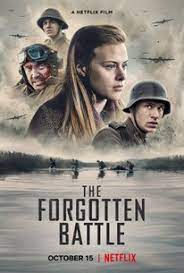


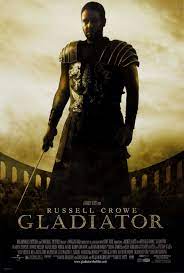

Hurricane
A Polish/UK co-production focusing on the Polish RAF squadron, their role in the Battle of Britain, and the grubby way they were treated after the war. The condescension of the establishment towards them, and their consuming grief and rage at what the Nazis are doing to their homeland and their families, are very powerfully conveyed and the air war scenes are thrilling.
The Impossible
Based on an eye witness account of the 2004 tsunami, this is a pretty intense watch. I did feel that the ending relied rather heavily on repeated coincidences to bring the survivors back together, but for all I know this may reflect what actually happened. Tom Holland as the teenage son is brilliant.
Is Paris Burning?
1966 epic about the liberation of Paris by the Resistance and Free French forces.
Jackie
Quite a tough watch. I guess watching a film about someone being suddenly widowed wasn’t a great idea, although the overall mood of the film was slightly chilly, which created some distance.
Kobo and the Two Strings*
Wonderful anime, with a story that went to much darker and complicated places than I was expecting, and was very moving (the version of ‘While My Guitar Gently Weeps’ that played at the end just broke me and I sobbed for quite a while).
The Last Sentence
Long (well, it felt long) and slow, this account of the life of a Swedish newspaper editor between 1933 and 1945, when Sweden was a neutral country. It deals with his political activity (anti-Nazi), but also with his relationships with wife and mistress(es). He’s a far from sympathetic character who treats the women in his life appallingly.




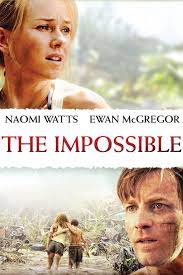

Lion*
I loved this – the kid who plays the protagonist as a child (Sunny Pawar) is utterly mesmerising and for the whole of that part of the narrative I was on the edge of my seat wanting him to be safe. Dev Patel as the adult version is also compelling as he becomes obsessed with finding the home that he’d lost before he even knew where it was.
The Lost Daughter
Olivia Colman is superb – as is Jessie Buckley as her younger self – and it’s quite a disturbing watch, with some visual shocks that may be real or hallucinations, and an ambiguous ending.
Ma Rainey’s Black Bottom
Chadwick Boseman is excellent again in this, and Viola Davis makes the most of her role as Ma Rainey – it’s a very powerful image of a black woman demanding to be treated not just with respect but as a kind of royalty.
The Tragedy of Macbeth*
Denzel Washington and Frances McDormand as Macbeth & Mrs Macbeth. I very much liked the Fassbender/Cotillard version from a few years back, but this one is brilliant too – the black & white expressionist cinematography creates, as the Time Out reviewer put it, magic with shadow and light.
Malcolm X
Spike Lee’s biopic, with Denzel again. Controversial at every stage of its writing and production, it’s a compelling portrait of a complex man.
Mary Queen of Scots
Margot Robbie and Saoirse Ronan as Elizabeth and Mary respectively, in a historical drama that takes some liberties with history but to very enjoyable effect.






Minority Report
Another of my son’s choices for post-surgery watching, and another excellent thriller with a philosophical dimension (free will v. determinism), and lots of opportunities for Cruise to do his thing.
Munich
Another Spielberg, and lord, this is dark. It kicks off with the murder of Israeli athletes at the Munich Olympics and moves on to the Mossad pursuit of the presumed killers – relentless, and brutal, but not without moral debate, and anguish on the part of at least some of the Mossad team about what they’re doing.
Munich: Edge of War
Another Robert Harris adaptation, setting up a slightly different reading of Chamberlain’s infamous appeasement of Hitler, with a (presumably) fictional plot involving a document that lays out unambiguously Hitler’s intentions that has to be smuggled from an anti-Nazi German to a member of Chamberlain’s team. I haven’t read the book so I don’t know how faithful it is to Harris’s plot, but it’s a fine thriller, with some very tense moments.
No Time to Die
Daniel Craig in his last outing as Bond. Classic stuff.
The Northman
Gory, shouty, completely gripping. Draws on the original story that Shakespeare used for Hamlet. With Alexander Skarsgard in the lead, and Bjork popping up as a seer. NB I first encountered Skarsgard in True Blood, where he played vampire Eric Northman…
Operation Finale
The capture of Adolf Eichmann in Argentina – manages to generate some tension despite the fact that we know the outcome, largely through the conversations between Eichmann and his captors as they wait until they can get a flight to Israel. Ben Kingsley and Oscar Isaac give strong performances.






Paris Blues*
I had never heard of this until I read some of the obits for Sidney Poitier. Poitier and Paul Newman are jazz musicians in Paris, who meet up with two women (Diahann Carroll and Joanne Woodward). It’s not much of a plot but who cares – those four beautiful people, wandering around Paris to a Duke Ellington score, and Poitier and Carroll talking about racial politics in the US, the reasons he won’t go back home, and the reasons she knows she must.
Philomena
A woman’s search for the child taken from her when she was a single mother back in Ireland in the ‘50s, this is a hefty emotional drama, played subtly by Dench and with real restraint by Steve Coogan. It exposes a cruel system, which continued until far more recently than one might have imagined, and how the Church managed also to profit from that system.
The Pianist
Adrien Brody as Wladyslaw Szpilman’s remarkable first-band account of his survival in Warsaw during the Nazi Occupation. The film doesn’t pull its punches – there are no last minute reprieves for most of the characters, nor miraculous returns from Treblinka – but we see only what Szpilman saw, the ghetto and the city, not the gas chambers and the crematoria, and it doesn’t milk the story for tears or shock.
Primal Fear
Edward Norton’s film debut and he’s absolutely brilliant, really lifts a decent thriller to a different level.
Quo Vadis Aida*
Incredibly powerful film, set during the siege of Srebenica by the Serbian army. Aida is a teacher who’s working as a translator for the UN and whose family are caught up in the horrors. The tension ramps up and up until it’s almost unbearable.
The Resistance Banker
Another of those European (Dutch again) WWII movies, this one does what the title says, tells the true story of a banker who devised a scheme to fund the Resistance and help Jewish families to escape. A really interesting and (to me) completely unknown story.

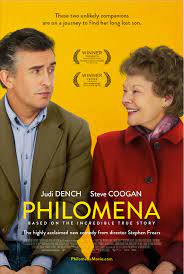

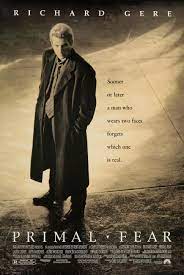

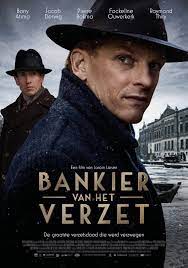
Sicario
Gripping, dark, brutal. Great soundtrack.
Snowpiercer
One of my son’s choices, and another win, not just because Chris Evans. I mean, there’s John Hurt and Tilda Swinton too… But the set-up is intriguing and the reveal is gradual and intelligently done, and with real impact.
The Social Network
This is very well done, and well played. It’s just that really, spending that amount of time in the company of these people isn’t my idea of fun.
Sonny Boy
Another Dutch WWII film, this one explores racism through the experiences of a young man from Suriname who moves to The Hague and forms a relationship with a white Dutch woman, before the war. It’s based on a true story, and it’s moving and thoughtful.
Spiderman: No Way Home*
This is an absolute blast. More multiverse madness, but amongst it all real heart, real poignancy as well as humour.
Spotlight
It’s All the President’s Men but with a newspaper office exposing the scandal of sexual abuse by Catholic priests in Boston. The tone is deliberately low-key, no histrionics, and it’s all the more powerful for that. Excellent performances from Rachel McAdams, Mark Ruffalo, Michael Keaton and Stanley Tucci.

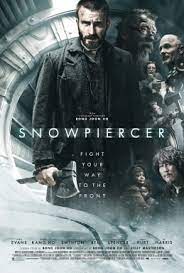

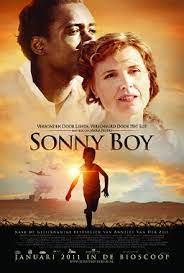


Suburbicon
Way, way, over the top black comedy as Matt Damon’s apparently conventional 1950s businessman is drawn into more and more violence to cover up a domestic crime, but this plot runs alongside a rather underdeveloped one concerning the arrival of a black family in a white neighbourhood and the campaign of hatred against them.
Suffragette
A decent historical drama about the Suffragette movement. Somehow it didn’t manage to be more than that.
Suite Francaise
See above for the plot similarities with The Silence of the Sea and The Aftermath. This is based on one of the two surviving sections of Irene Nemirovsky’s novel, which was left unfinished when she was deported to her death in Auschwitz in 1942, and only published this century. She was an established and successful novelist before the Occupation but this was written clandestinely, while she tried to keep her children and husband safe. The film is faithful enough to the novel, but has a rather soapy feel to it. It’s impossible to respond to the novel without thinking of the story of its publication, and unusual to read a fictional account of the Occupation which is totally without hindsight (someone in my book group criticised Nemirovsky for not talking about the deportation of the Jews, but focusing on romantic tension between occupied and occupier…).
Sully
Tom Hanks as the good, decent, ordinary guy again. Laura Linney as his long-suffering wife (she’s having much more fun in Ozark (see below)). The film depicts not only the extraordinary landing on the Hudson after birds fly into and incapacitate the plane’s engines, but the inquiry afterwards, which seems to be challenging Sully’s professional judgement that this was the only way he could save the plane’s passengers. It’s gripping stuff, and the effect on Sully of these traumatic events is conveyed very powerfully.
Their Finest
Adaptation of one of Lissa Evans’ marvellous WWII novels, this is a funny and sharp account of the making of wartime propaganda films, with great dialogue and characters.
Train to Busan*
One of the best zombie films I’ve seen. It reminded me of Carpenter’s Assault on Precinct 13, with the sheer relentlessness of the onslaught. It’s very very gory and it keeps the tension up right to the end.
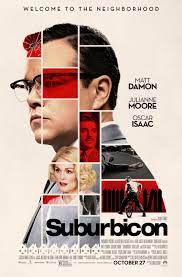



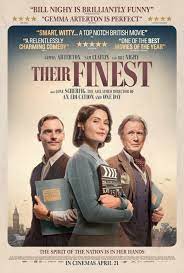
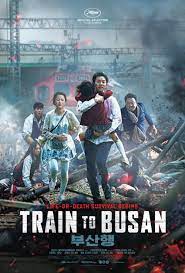
Turning Red
Lovely, funny and touching film about adolescence and the mayhem of hormones in a newly teenaged girl. Coping with her own turmoil of emotions and sensations, and with her mother’s embarrassing attempts at solidarity and support has a surprising effect on Mei Lee… A delight.
United
A moving account of the Munich air crash through the eyes of the very young Bobby Charlton. It could have been better – we didn’t need the cartoon villainy of the FA and the portrayal of Matt Busby was odd (and offended his family deeply), but it worked, and the period detail of how even top-flight footballers lived back then is fascinating.
World Trade Center
An extraordinary achievement, to make a boring film about 9/11. I’m not underplaying the courage of the firefighters portrayed in the film, who did what they had to do regardless of their own safety, but they deserved a much better cinematic tribute.
Worth
A very different take on 9/11 as Michael Keaton plays an accountant who has to devise the algorithms to determine compensation for victims and their families, and Stanley Tucci is the widower who challenges the impersonality of the approach. We share Keaton’s detached perspective for much of the film, which gives the sections where members of his team interview victims and families huge power. It’s interesting, challenging and moving.
Zero Dark Thirty
Still with 9/11, this is a cracking thriller about the hunt for Bin Laden, which doesn’t shy away from the morally grey areas.
Zodiac
The long and ultimately unresolved hunt for the Zodiac killer is here shown not only through the murders themselves but through the effect on those involved in the hunt – Ruffalo, Downey Jr and Gyllenhaal give strong performances.



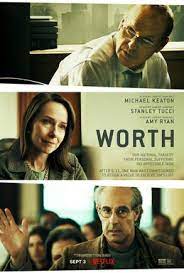
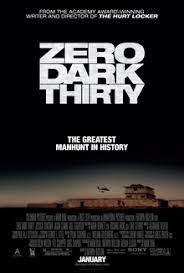

TV
After Party
Very silly, visually witty, cracking script. A lot of fun.
All Creatures Great & Small
Proper comfort telly. Yes, it risks cosiness and I hate that word, but it actually never dodges the brutal realities of farming and livestock management, and it has given Mrs Hall (in the 1980s televisation a stereotypical older woman, stout and no-nonsense) an emotionally powerful back story and a lot more agency. And Sam West is now Siegfried Farnon, as far as I’m concerned.
Anatomy of a Scandal
Sillier than I’d expected from reading the book, which I recall being quite a decent thriller. The dramatization uses some very odd visual tricks (a man suddenly being thrown backwards by an invisible force when police take him in for questioning about a rape, and flashbacks where present-day version and past version of a character are both visible, and so on) which were just gimmicky. The inevitable compression of the plot made its weaknesses more obvious, plus I got very tired of the wronged wife’s incredibly beige wardrobe.
Anne
Harrowing account of the life of Anne Williams, mother of one of the Hillsborough dead, and relentless campaigner for justice for all of the 97. It starts off as a tough watch and doesn’t get any easier, but it’s important as a reminder of what it takes to win any kind of recognition of institutional wrongdoing, and of how fragile any win is likely to be.
Baptiste
I do very much like Tcheky Karyo’s grizzled detective and Fiona Shaw was a great addition to the cast. I enjoyed the plot, although I found myself not quite believing the central premiss, and not at all believing Baptiste’s remarkable full recovery from what looked like a pretty comprehensive battering by a man half his age. Just for once, it would be good to have an older hero whose age was acknowledged a bit more honestly – I don’t mean they spend the whole show complaining about their joints, but don’t suddenly make them into an almost invulnerable action hero, OK?
Beck
Now Beck is an older hero whose age is acknowledged, both directly in terms of his health, and tacitly – he doesn’t suddenly chase down a perp, or engage in fisticuffs with young thugs. He uses his vast experience and lets the young cops do the risky stuff, and quite right too. The supporting cast are great, and the plots are dark and tense. Though I am slightly tired of the usual coda with Martin and his neighbour on the balcony – might be time to retire that.





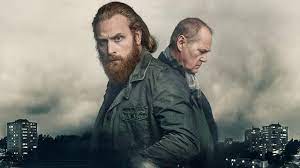
The Crown
I would never, ever, have persuaded my husband to watch this. I only started because a couple of friends whose judgement I trust told me how good it was, and they weren’t kidding. The period it spans is pretty much my lifetime, plus my parents’ recollections of earlier events and it was absolutely fascinating to see the events I recall from this very different, very odd perspective. The cast are brilliant – I did wonder how the transition from one set of actors to another would work, but after half an episode or so to recalibrate, it was fine. It’s all very bizarre really, and I wonder how they’re going to handle some current royal issues when they get to them…
Dalgliesh
Bertie Carvel is my third Dalgliesh. First up Roy Marsden, cerebral and ascetic, then a seriously miscast Martin Shaw (nothing against Shaw, but he’s not Dalgliesh). Carvel was just right, the supporting cast were excellent, and the plots pretty faithful to the books. I look forward to future series.
The Defeated
A dark, grim crime thriller set in Berlin immediately after the war, a city divided into different occupied zones, a city of rubble and displaced people and people just trying to survive by legitimate or corrupt means. I didn’t take to the leading man, thought he was a bit characterless, but the portrayal of that world, and the interweaving stories were very powerfully done. Lots of threads left dangling, for a second series to pick up.
Derry Girls*
Glorious. Lisa McGee’s writing is pitch perfect – she gets the balance between the teenage self-preoccupation and silliness and the events around them just right, and knows just when and how to punch us in the guts. I don’t know what to pick out for special mention – the episode with the mammies, Liam Neeson’s cameo appearance with Uncle Colm, Orla dancing through Derry… The finale was a thing of great beauty and power and I loved it.
DI Ray
One can’t claim now that there aren’t black officers in senior roles in TV crime dramas but I haven’t seen before such an honest treatment of the microaggressions that those officers encounter along the way. There were a few plot issues (why does the plot always require our hero to behave stupidly and unprofessionally when they’ve been portrayed up to that point as bright and professional?), and the overall mood was rather dour, but I’ll be interested to see if it gets picked up for a second series.
Doctor Who
Just two specials in this half-year. The New Year’s Day episode was great, funny and clever, and I do love a time loop. The Sea Devils episode was fun but had rather too much plot for its running time, so ended up feeling a bit disjointed, and will be remembered for the tentative and awkward acknowledgement of mutual feelings between Yaz and the Doctor (very nicely handled). Only one more special to go – I’ll be sorry to see Whitaker go, and wish she’d had consistently better scripts and not had a pandemic to interrupt the flow (though her broadcast in character during the first lockdown was a thing of beauty). But I’m really, really looking forward to RTD’s return and to meeting 14 (even if it’s also hurting my heart that 14 will be the first Doctor Martyn will never have encountered).






The Falklands Play
I think my response when this was originally broadcast in 2002 (in an amended and abridged version) would have been much more cynical about its comparatively positive portrayal of the then Conservative government, and it speaks volumes about the state of our current cluster of incompetence and dishonesty that my main reaction was, good lord, here are people seriously considering what is the right thing to do, and insisting on resigning if they got it wrong (in failing to foresee the invasion), and isn’t that extraordinary? Obviously, Patricia Hodge’s Thatcher is a far less odd and far more sympathetic portrayal than Gillian Anderson’s in The Crown, and the reality was probably somewhere between the two. The production history and the politics of the writing, production and broadcast are as interesting as the play itself in a way.
Fargo
The fourth spin-off series from the film, this time set in 1950/51, in Kansas City, and the scene is set as successive generations of gangsters (Irish, Jewish, Italian, African-American) jostle bloodily for dominance. If it doesn’t quite match up to the brilliance of previous series, there’s plenty of very dark humour, and a sharply written script, as well as a mesmerising turn from Jessie Buckley, to enjoy.
Five Came Back
This fascinating documentary series explores the work done during WWII by five Hollywood directors (Ford, Wyler, Huston, Capra, Stevens) who were recruited to create propaganda films to win hearts and minds at home. It explores each of the five’s response to what they saw on the front line, and how what they wanted to say wasn’t always permitted (Huston’s film about PTSD in returning soldiers, for example), and how their experiences affected their post-war careers.
Final Account
German documentary featuring interviews with some of the last generation of German participants and witnesses to Nazism. It’s a deeply troubling watch – even the best of the interviewees clearly have fond memories of their days in the Hitler Youth, and for the most part there is a stubborn reluctance to acknowledge what they knew.
Gentleman Jack
Suranne Jones is striding across the Yorkshire countryside again, and it’s marvellous.
Happy Valley
Grimly gripping crime drama set in the least happy valley one could imagine. The writing and the performances are top notch.
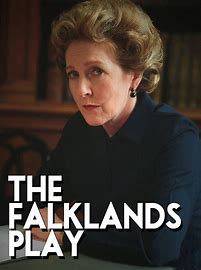





Hidden
Mind you, the Welsh landscape of Hidden is hardly a tranquil haven either. Again, writing and performances ensure that you can’t look away.
Inventing Anna
Dramatisation of real events, carried by a bravura performance by Julia Garner as Anna Delvey/Sorokin, who conned people out of millions basically just by acting as if she was super rich and telling people she was super rich. Delvey/Sorokin is a very odd character, sociopathic and ruthless, and if one didn’t know it was a true story, one would find it very hard to believe that she convinced anyone to part with even a used fiver.
The Ipcress File
Clearly there was no need for a remake but here we are, and I rather enjoyed it. I liked Joe Cole in the lead, it was all very stylishly done, and no more or less faithful to the Deighton novel than the 1960s film was.
Jimmy Savile: A British Horror Story
Vile. I can remember when he was ubiquitous on the telly, and I never liked him, but I thought he was just irritating rather than being dangerous. And yet some of the clips included in the documentary practically advertise his predilections. Did we learn anything new or useful? I don’t know – except that if someone tells the world that they are a monster, it’s probably sensible to believe them…
Killing Eve
Yes, it should have probably finished at the end of season 2, or 3, but having got this far I was always going to watch the final series. There were some good moments, and some important revelations, and quite a few scenes from which I had to look away.
The Last Days
1998 documentary telling the story of five Hungarian Jews who survived deportation to Auschwitz in the last year of the war. As always, I am struck by the sheer obsessive insanity of a regime losing a war on several fronts which channels huge resources into rounding up and murdering people who pose no threat to the regime other than by their existence as Jews.





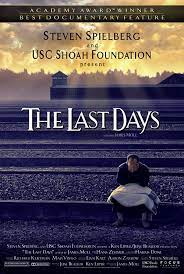
Lenny Henry’s Caribbean Britain
Fascinating interviews, wonderful music, and a forceful reminder of the daily experience of racism in all its forms that all of the participants have encountered. I would have loved a longer series that could have gone into greater depth into some aspects – particularly the interface between African and Caribbean cultures.
Life after Life*
Superb. Beautiful and so very moving. Kate Atkinson’s book is one of my favourite novels of this century – I’ve re-read it several times and I love it. I did wonder about the wisdom of watching this, as life after life also means death after death, and I did have to have quite a big cry after each episode but in a strange way, this is life affirming and uplifting, and I’m glad I did.
Lupin
French crime thriller with a light touch, as Omar Sy carries out heists inspired by the fictional detective Arsene Lupin. Sounds daft, but it’s v enjoyable.
Midwich Cuckoos
A decent adaptation of the Wyndham novel. It updates the action, so that rather than everyone having conniptions about unmarried women being pregnant, the women, and any partners, all respond in much more nuanced and individual ways, at least until their unborn offspring start controlling their emotions and actions.
Mindhunter
Whilst I often wished I could unhear some of the dialogue (during the FBI agents’ interviews with convicted serial murderers) this is really compelling – I hadn’t realised quite how the vocabulary and the profiling assumptions that we take for granted about serial killers grew out of the work of this small FBI team in the 70s. Whilst the two leads are fictionalised, the cases are real, and it was particularly interesting to see the treatment of the Atlanta child murders (watching this led me to read Tayari Jones’ novel, Leaving Atlanta, and James Baldwin’s essay, Evidence of Things Not Seen, to find out more, from different perspectives).
Moon Knight
This was often bewildering, often funny, often quite scary.






Ms Marvel
Ms Marvel, like Spiderman, is dealing with the arrival of superhero-ness alongside the usual teenage challenges of school, parents who just don’t understand, friendships and crushes. Unlike Spiderman, she’s also negotiating the cultural heritage of her parents, and the history of Partition and what it did to their family. Hugely engaging.
My Name is Leon
Beautifully done, with a wonderful performance by Cole Martin in the lead as a ‘looked after’ child. Breaks your heart, but heals it too.
Normal People
Oh, I have struggled with this. The performances are excellent, it’s not that. Maybe I just find being reminded of being that sort of age, and the agonies that go with it, too much. Every conversation, every interaction is so burdened with unspoken insecurities and with misunderstandings that could be cleared up in five minutes if they just had a proper chat.
Opera Italia
The ebullient Antonio Pappano, currently music director of the Royal Opera House, but who we saw conducting at the Auditorium in Rome a few years back, is the perfect host for this history of Italian opera.
Ozark
Brilliantly dark crime series, with a labyrinthine plot and a cast of characters who are, to a man, woman or teenager, morally compromised. That we root for some of those characters is because they are drawn with so much depth and detail that we understand who they are, even if we disapprove of what they do. Laura Linney, Jason Bateman and Julia Garner are particularly strong.
Parks & Recreation
I was told that if I got Season 1 out of the way and got into Season 2, I would love rather than just liking Parks & Rec, and would love rather than just liking Lesley Knope. This is indeed how it panned out.
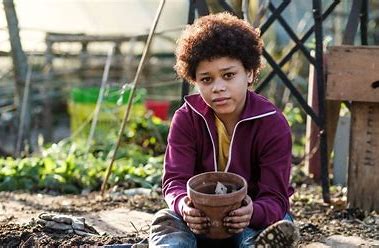





Peaky Blinders
The final season as far as TV is concerned – mention has been made of a movie, so we’ll see what comes of that. Season 6 was always going to be tricky, as the absence of Aunt Polly made things feel a little out of kilter, even whilst it made room for the other women in the cast in various ways to take centre stage. Whilst some of the earlier episodes seemed to take a lot of time to not progress the narrative very much, it gathered pace towards the end of the run, and the final episode was a masterclass in drawing threads together, but also leaving questions unanswered and possibilities dangling tantalisingly…
Picard
Pace was an issue with Season 2 of Picard too – the flashbacks to Picard’s childhood, though it became clear why they were so important, were too long drawn out and too often repeated. But the Borg are always a welcome arrival (in plot terms), and the time travel plot was fun, and the denouement was surprising and moving.
The Promise
French crime. Enjoyable, but tiresomely dependent on good, professional cop behaving badly/foolishly.
Sherwood*
Superb. The long afterlife of the divisions between mining communities and families during the 1984 strike was well known to us, having lived in Nottinghamshire and then subsequently in Yorkshire, and having had to explain to our son why Sheffield United supporters as yet unborn in ’84 were yelling ‘scab!’ at Nottingham Forest supporters as yet unborn in ’84… The cast list is packed with some of the best British actors of recent years, too many to mention but Adeel Akhtar is particularly outstanding. Its only misstep was a reference to ‘Notts Forest’ in ep. 1, but the writing and performances are so fine that I had to forgive that. And the ending… Subtle, intelligent and powerfully emotional.
Slow Horses
This is le Carré territory, except that the spies are the dregs of the British secret services, all having been demoted for some dereliction of duty or failure of judgement, and are being led by one Jackson Lamb (brilliantly played by Gary Oldman) who is, or at least purports to be, completely cynical and disillusioned about the whole thing. It’s funny and sharply written, and gripping too, since despite Lamb’s best efforts, his motley collection of failed spies get drawn into some fairly heavy events.
Stranger Things*
We were told so many times by so many people, when this first started, to watch it, and I have no idea why we failed to heed that obviously sound advice. The homage to Stephen King, the echoes of Buffy, the nods to ET and Close Encounters, all mark this out as entirely our sort of thing. So I’m sad we never got round to it together, but I have been loving seasons 1 and 2 this year.
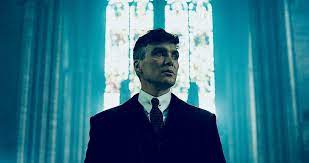




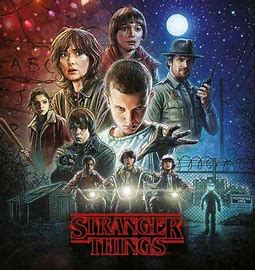
Ted Lasso
Season 2 experimented more with the format than Season 1, but kept the things that made this special. And the fact that it ends with Richmond’s skin-of-the-teeth promotion is a particular delight, given my own team’s success this year (Nottingham Forest, obviously).
The Time Traveller’s Wife
The film was too constrained for time (ha!) to really explore the complexities of the narrative, so stretching it out into at least two series certainly works better. The awkwardness of the scenes between adult Henry and child Claire is handled well, with due acknowledgement given to the disturbing way that their friendship could be interpreted and the two leads are charismatic.
Trigger Point
Thriller based in a Met bomb squad. There’s certainly plenty of tension, but the script is often leaden and however good the leads are (and they are very good) there’s a limit to what they can do with the lines they have to speak…
Stanley Tucci: In Search of Italy
Delightful. Tucci is the most charming of hosts, clearly a man who loves his food (and somehow, annoyingly, maintains a svelte figure despite this) and he takes us region by region through the cuisine, the ingredients, the techniques, the history, the politics of food.
Turning Point
Documentary series about 9/11, which begins with the attack and then explores the US and international response. Very interesting and hard-hitting.
Uprising*
Powerful and gut-wrenching Steve McQueen documentary series about the New Cross fire and the ways racism twisted the media response to the deaths, and the police investigation into the cause of the fire.






Vigil
Properly claustrophobic submarine-based thriller. Was it plausible? I don’t rightly know, but I totally bought into it, for the length of the series at least.
The Walking Dead
I’ve somewhat lost track of what season we’re in now, or how far through, what with all of the breaks. But I know we’re coming towards the end of what has been, overall, a bloody good run. It did lose its way a bit for a while, dragging the Saviours plot out too long, but it got back on track with the Whisperers, and took things in a whole new direction with the Commonwealth.
We are Lady Parts*
Fabulously funny series about an all-female Muslim punk band, with Anjana Vasan (also seen this year as Pam in Killing Eve) a delight in the lead role.
We Own this City
From the same stable of writers as The Wire, which is a damn fine pedigree. This is based on real events, police brutality and corruption within the Baltimore PD’s Gun Trace Task Force. Jon Bernthal is brilliant in the lead role, all swagger and strut, with Jamie Hector (Marlo in The Wire) as his polar opposite. It’s dark, and the non-linear narrative requires some concentration.
Who Do You Think You Are?
Another long-running series that I only started watching in the last few months. How interesting it is depends on the person whose family history is being explored – I found Sue Perkins’ story fascinating, and Matt Lucas’s was almost unbearably moving, all the more so because his normal TV persona (one that I find intensely irritating, TBH) was entirely absent. Instead a serious, grown-up person was there, one who at many points in the programme was struggling with deep emotions as he discovered the stories of relatives who had remained in Germany or fled to the Netherlands during the war.
Winter on Fire
Fine documentary about the Maidan uprising in Ukraine in 2013-14, obviously even more significant, pertinent and moving in the present circumstances.
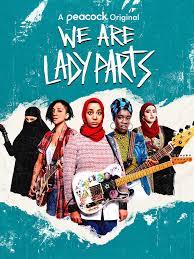




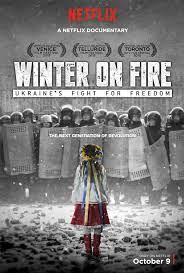
100 best crime novels of all time, as chosen by me…
Posted by cathannabel in Uncategorized on October 30, 2020
I do love a list. And so I seized upon Dead Good’s list of the 100 best crime novels of all time, as chosen by their readers. I was surprised by how many were completely unfamiliar to me, and by how many of my favourite writers and novels didn’t feature at all.
So, obviously, I had no choice but to put together my own list…
Not ranked, just in alphabetical order of author’s names, only one title per author allowed. Many are in series, and I have been completely inconsistent in whether I cite the first in the series, or the latest, or just one I happen to particularly care for. I’ve linked to reviews, where they are not too spoilery.
The stories span the centuries – from 1327 to some time in the future – and the continents. Whilst most are set in the UK or the US, we also travel around Europe, and to Africa. It’s a pretty white list, only three black writers, to my chagrin. To my ‘read more black writers’ resolution I will add the postscript, ‘and more black crime writers’… About half the writers are women – and more than half if we just take contemporary writers.
Not all of these are whodunnits – in some we know who from the start, in others there may be uncertainty even on the final page, or the ‘who’ may simply not be the point. The protagonists may be coppers or PIs, perpetrators or victims. Not all feature police procedure or private detectives or lawyers. But all have crime at the heart of the story.
So. My top 100:
Ben Aaronovitch – Moon over Soho. My favourite (because jazz) from the brilliant Rivers of London series.
Lisa Appignanesi – Paris Requiem
Claire Askew – All the Hidden Truths
Kate Atkinson – Case Histories. First in the excellent Jackson Brodie series.
Oyinkan Braithwaite – My Sister, the Serial Killer. Audacious Lagos-set novel. Evidently not a whodunnit…
Chris Brookmyre – Places in the Darkness. Brookmyre does scifi. Crime scifi.
James Lee Burke – The Neon Rain. First in the Dave Robicheaux series, set in Louisiana.
Michel Bussi – Maman a tort. A highly complex and twisty French thriller, which really messes with your head. In English translation as The Wrong Mother and recently on the telly as The Other Mother…
Helen Cadbury – To Catch a Rabbit. First of three Sean Denton police procedurals, set in South Yorkshire, gritty and gripping.
Andrea Camilleri – August Heat. The late Andrea Camilleri’s tenth Inspector Montalbano novel. Plenty of humour and forthright political commentary too.
Jane Casey – The Cutting Place. Latest in the Maeve Kerrigan series, which just gets better and better.
Raymond Chandler – The Long Goodbye. Stone cold classic.
Agatha Christie – Sleeping Murder. I always liked the Miss Marple ones best. Something about her beady-eyed take on the world made the murders creepier and this is one of my favourites.
W H Clarke – An End to a Silence. First in a trilogy, part 3 still eagerly awaited.
Ann Cleeves – Harbour Street. A Vera Stanhope title (I was torn, could have chosen a Shetland, but there you go, and I do like Vera a lot).
Harlan Coben – Home. The first of his that I read. Slick but very skilful.
Wilkie Collins – The Woman in White. Arguably one of the earliest detective novels. A brilliant story, with a great female character in Marian Hascombe.
Joseph Conrad – The Secret Agent. A political thriller, featuring Chief Inspector Heat, the precursor of so many dogged coppers in pursuit of criminals of various stripes.
Patricia Cornwell – Postmortem. The first Scarpetta novel.
Didier Daeninckz – Meurtres pour memoire (Murder in Memoriam). A contemporary crime leads back to a suppressed atrocity in 1961 and back further to war crimes under the Vichy government.
Jill Dawson – Fred and Edie. Based on the true story of Edie Thompson & Fred Bywater, who conspired to murder Edie’s husband, and were both hanged for the crime.
Colin Dexter – Last Bus to Woodstock. The first Morse.
Charles Dickens – Bleak House. Another early detective, Inspector Bucket, possibly based on real-life detective Jack Whicher (see Kate Summerscale’s The Suspicions of Mr Whicher). It’s also the finest novel in the English language, BTW.
Eva Dolan – Long Way Home. First in a series featuring DI Zigic and DS Ferreira from the Peterborough Hate Crimes Unit.
Fyodor Dostoevsky – Crime & Punishment.
Louise Doughty – Platform Seven
Arthur Conan Doyle – Adventures of Sherlock Holmes. I read these as a child, in the bound volumes of the Strand Magazine that my grandfather had owned. ‘The Speckled Band’ in particular haunted me.
Theodore Dreiser – An American Tragedy Based on a 1906 real-life murder.
Umberto Eco – The Name of the Rose. “Books always speak of other books, and every story tells a story that has already been told”. Postmodernism, semiotics and murder.
Gillian Flynn – Dark Places
John Fowles – The Collector. Fowles’ disturbing literary debut.
Tana French – Broken Harbour. In the excellent Dublin Murders series. This one got thoroughly under my skin.
Frances Fyfield – Perfectly Pure and Good. A crime writer who doesn’t get enough attention these days – I read her a lot in the 80s and 90s. This is one of a series featuring lawyer Sarah Fortune.
Robert Galbraith – The Cuckoo’s Calling. First in J K Rowling’s pseudonymous crime series.
Valentina Giambanco – The Gift of Darkness. First in her Alice Madison series.
Andrea Gillies – The White Lie . I came across this writer with her moving account of life with a family member with dementia. Themes and preoccupations recur…
Lesley Glaister – Honour thy Father. The first of Glaister’s novels that I read, I think. Gothic, murdery, full of secrets.
Graham Greene – Brighton Rock. Damnation and justice. Ida Arnold fighting crime, not because it’s her job but because it’s the right thing to do.
Isabelle Grey – Good Girls Don’t Die. First in the DI Grace Fisher series
Elly Griffiths – The Crossing Places. First in the splendid Ruth Galloway series. Read them all, and Griffiths’ other series too. You’ll thank me later.
Mark Haddon – The Curious Incident of the Dog in the Night-time
Jane Harper – The Lost Man. Third novel from Harper and the strongest, I think. The landscape – in this case, the Australian outback, where the scorching heat itself is a ruthless killer – is a powerful part of the narrative, almost a protagonist.
Joanne Harris – Different Class. Darkly funny and a bit bonkers.
Robert Harris – An Officer and a Spy. The story of the Dreyfus affair and the officer who fought to prove his innocence
Thomas Harris – Red Dragon. A baroque serial killer and an FBI profiler, precursor to Silence of the Lambs
John Harvey – Cold in Hand. The penultimate novel in John Harvey’s wonderful Resnick series
Paula Hawkins – Girl on the Train
Emma Healey – Elizabeth is Missing
Mick Herron – Slow Horses First in a series about a department of MI5 rejects – acerbically funny but without pulling any emotional punches.
Patricia Highsmith – Strangers on a Train
Lynn Hightower – Flashpoint. First in the Sonora Blair series.
Sarah Hilary – Never be Broken. The most recent Marnie Rome.
Reginald Hill – On Beulah Heights. The best Dalziel & Pascoe.
Susan Hill – The Betrayal of Trust. One of the best of a fascinating series, featuring DCI Simon Serrailler.
P D James – Cover Her Face. The first Adam Dalgliesh novel.
Philip Kerr – Prague Fatale. Bernie Gunther’s eighth outing. As always, Kerr walks a fine line, integrating Nazi atrocities with the mechanics of the thriller. But he does it superbly well.
Stephen King – Mr Mercedes. First in a trilogy (see also Finders Keepers, and End of Watch) with characters who recur in other recent King novels.
Vilmos Kondor – Budapest Noir. The first in a series of five, apparently, but the only one available in English
Stieg Larson – Girl with the Dragon Tattoo
John Le Carré – Call for the Dead. Our first encounter with one George Smiley…
Ira Levin – A Kiss before Dying. Less well-known than some of Levin’s other titles, but an absolutely cracking thriller.
Laura Lippman – Lady in the Lake
Attica Locke – Pleasantville. Sequel to Black Water Rising
Henning Mankell – Sidetracked. Wallander no. 5
Peter May – The Blackhouse. First of the Lewis trilogy
Ed McBain – Let’s Hear it for the Deaf Man. 26th in the 87th Precinct series, and the third to feature their most challenging adversary, the eponymous Deaf Man.
Alexander McCall Smith – No. 1 Ladies Detective Agency
Val McDermid – The Distant Echo. The first in the DI Karen Pirie series
Ross McDonald – The Drowning Pool
Adrian McKinty – The Cold Cold Ground. First of his Belfast-set Sean Duffy crime series
Denise Mina – The Long Drop. Based on a real 1950s Glasgow murder case
Julie Myerson – Something might Happen
Catherine O’Flynn – What was Lost
Sara Paretsky – Indemnity Only. Our introduction to the redoubtable V I Warshawski
Nii Ayikwei Parks – Tail of the Blue Bird. Set in the Ghanaian ‘hinterland’, the storytelling is shared between Kayo, the young forensic pathologist armed with all of the science stuff, and Opanyin Poku, the old hunter who is armed with proverbs and stories.
Louise Penny – A Fatal Grace. The second in the Inspector Gamache series, set in a small Québécois town. Not at the gritty end of crime fiction but that doesn’t mean they’re superficial or cliched.
Ian Rankin – The Naming of the Dead. The 16th Rebus
Danuta Reah – Silent Playgrounds. Atmospheric thriller, set in Sheffield
Ruth Rendell – Judgement in Stone. Generally reckoned to be one of her greatest works. Adapted for the cinema by Claude Chabrol, no less.
C J Sansom – Dark Fire. Second title in the Tudor-set Shardlake series. If you’ve been missing Thomas Cromwell since finishing The Mirror & the Light, he’s here.
Dorothy L Sayers – Strong Poison. Probably my favourite of the Lord Peter Wimseys, which I have read and re-read for decades. Always loved Harriet Vane. Shout out, BTW, to the late Jill Paton Walsh who wrote a series of four Wimseys, which are very good indeed.
Lynn Shepherd – Tom All Alone’s. ‘Literary’, postmodern crime – this one riffs primarily on Bleak House (see above), and there’s a slice of The Woman in White in here as well.
Anita Shreve – The Weight of Water.
Lionel Shriver – We Need to Talk about Kevin
Cath Staincliffe – The Girl in the Green Dress. Staincliffe is always concerned not just with the crime and its solution but the ripples that flow out from the crime, and her novels carry real emotional heft. This one is devastating.
Susie Steiner – Remain Silent. The latest in the Manon Bradshaw series, featuring a tremendous, real, abrasive central character.
Josephine Tey – Daughter of Time
Lesley Thomson – The Detective’s Daughter. The start of a most intriguing series. Thomson has been compared to Rendell, and to Kate Atkinson.
Scott Turow – Presumed Innocent
Barbara Vine – A Dark Adapted Eye
Of course, if I were to do this again in a few years, some of these titles would have been superseded. But I am inclined to think many of the authors will still be there.
This genre has so much potential. The titles I’ve picked not only give us plot and character, suspense and tension. They also address issues of morality and mortality, class and race and gender, politics and psychology and sociology – the whole rich tapestry of human life is here. And human death, obviously…
Rasoul, Shiva, Anita and Armin
Posted by cathannabel in Uncategorized on October 30, 2020
Words failed me when I heard of this latest tragedy. They haven’t failed Phil Davis, whose writing about refugees is always passionate and based on first-hand knowledge.
Earlier this week Rasoul Iran-Nejad, Shiva Mohammad Panahi, Anita and Armin drowned in the English Channel, attempting to cross from France in order to seek asylum from Iran.
Home secretary Priti Patel issued a statement.
“I am truly saddened to learn of the tragic loss of life in French waters this morning. My thoughts and prayers are with their families and loved ones at this time… This tragic news highlights the dangers that come with crossing the Channel and I will do everything I can to stop callous criminals exploiting vulnerable people.”
There is a political and policy response to this, but first lets pause and remember 4 people -two adults and 2 children, dead. Underlying all of this is a human tragedy.
I’m sure Priti Patel genuinely mourns them too. She’s no cartoon monster. This tragedy, to an extent, demonstrates the broken asylum and immigration system that she has…
View original post 903 more words
Pregnant
Posted by cathannabel in Uncategorized on June 19, 2019
Reblogging for Refugee Week, a recent post from Phil Davis’s always passionate and thought-provoking A Darkened Room blog.
Sometimes it’s the little details that clarify the big picture. At Hope Projects we’ve just housed a homeless and destitute woman. She was pregnant. It wasn’t a mistake that she was homeless and destitute.
There’s a human instinct to treat pregnant women carefully. The mother-to-be is vulnerable. Her unborn child is exceptionally vulnerable. Lets stand up on buses so she can have a seat, or at least tut at others who don’t. It would take a heart of stone to do otherwise.
Even the Home office recognise this. Up to a point.
While refused asylum seekers are not entitled to any housing, financial support or right to work (see pretty much every previous blogpost…) Obviously, different rules apply to pregnant women. I mean, you can’t just literally throw a pregnant woman out on the street in a frightening, foriegn country to starve, can you? So the Home Office have a…
View original post 237 more words


